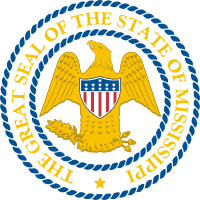 Teens and underage adults across the nation are heading to their spring break destinations this week. But the much anticipated spring vacation offers students more than sandy beaches, snow slopes, and fun times under the sun. Even if you stay close to home for your spring break vacation, hanging out with your peers could mean hanging out around alcohol.
Teens and underage adults across the nation are heading to their spring break destinations this week. But the much anticipated spring vacation offers students more than sandy beaches, snow slopes, and fun times under the sun. Even if you stay close to home for your spring break vacation, hanging out with your peers could mean hanging out around alcohol.
According to Mothers Against Drunk Driving (MADD), teens who resist the temptation to drink report that their biggest challenge is combating peer pressure and the desire to fit in. We get it. Sometimes it seems like everyone is drinking alcohol. In fact, the Institute of Medicine reports that 1 in 6 teens binge drink, while the National Institute on Alcohol Abuse and Alcoholism (NIAAA) reports that more than 70% of teens have had at least one drink by the age of 18.
While alcohol might be the most commonly used and abused drug among American youths, it also results in over 4,700 deaths among youths each year, according to the Centers for Disease Control and Prevention (CDC). But you don’t have to be one of them, and you’d be far from the first teen to say “no” to alcohol. In fact, the 2013 Monitoring the Future study recently reported that underage drinking reached an all time low in 2013.
But once you’ve decided to say “no” to alcohol (and to getting into a car with a drunk driver), how do you actually say it without bringing on more peer pressure or making a big scene? We scrounged up a few responses that your friends might accept and even relate to:
- Keep it simple: “No, thanks” or “I don’t drink.”
- Blame your parents: “I’m already in a lot of trouble and will be grounded through summer if they find out.” (We only suggest this response for high school teens.)
- Make an excuse: “I’m still feeling queasy from that stomach bug I had this weekend.” And if you’re pressured to ride with a drunk driver? “That’s ok, my friend is picking me up.”
- Suggest an alternative: “I’d rather have a soda.”
- Change the subject: “No, thanks. Hey, did you hear about the surf competition tomorrow? We should go check it out.” (That example is for the beach bums, but you get the idea.)
Have these examples or some responses of your own ready to go so that you’ll be prepared when peer pressure rolls around. And remember to sound natural. If you don’t make it sound like an issue, neither will your friends.

